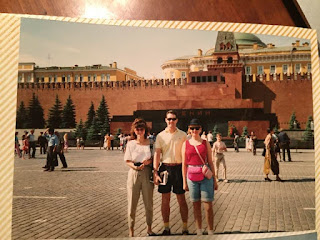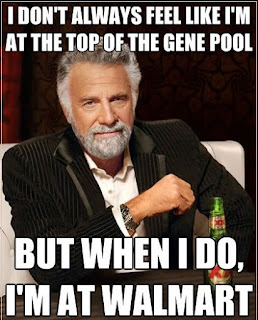Chapter 1: Ordinary Love
Where
does one begin?
With
the black doorman, right?
The parking garage under the condos
on Astor Street in downtown Chicago smelled of gas fumes, seemed like a secret dark
and cavernous world beneath a mysterious city, hinted at a faster pace. Above it—right
on top of it—a luxury condo building rose high, scraping a blue sky so to
speak, overlooking Lake Michigan with its sail boats and bordering Lincoln Park,
which was the site of my favorite zoo—a city zoo—and the botanical gardens
where the old man always gave me a fresh orchid to take home. My grandparents
moved from Skokie to Chicago in 1976, the Bicentennial, when I was six. Downtown
Chicago was glamorous, windy as always, heavy-ladened with a history of fire,
of gangster, of race, of politics, of glories.
Class consciousness right there. No one
told me, no one showed me. They didn’t have to. Six-years-old. The rich, the
poor, the black, the white.
My grandparents lived on the seventeenth
floor of that building on Astor, windows meeting at the corner, a City of
architectural wonder, draw bridges, towers. I’d work my way into a New York City
Story but never get beyond the status of child-voyeur in Chicago. That
seventeenth floor condo was as inside as I got.
My parents lived in Phoenix, in a new
development in the Arizona desert, houses on dusty lots, rocks and bent nails
and snakes, tract homes, middle class. My mom, a bit of a family black sheep,
not yet the Born Again Christian she would become, still reeking of the Sixties
and Joni Mitchell. My dad, not so bound for or fleeing from the Upper Crust
World of his in-laws. Not exactly a boy from the wrong side of the tracks, but
not exactly going places either. Your
basic nice Jewish boy from an okay Jewish neighborhood. Jewish schools. Jewish kids.
Temples, shawls, rabbis. The whole shebang. (His own mother was an orphan in
Russia, rescued, taken to America by an uncle whose name I don’t even know.) My
father would spend his life caught in a kind of craving, envy. Working hard,
supporting his family, trying to make a buck. My mom wouldn’t chase the dollar.
She was born to resist. I’d be a child on the borderland. We had left the Chicago
life in the early seventies, so I would forever be a visitor. Navigating
worlds, social classes even, eventually religions and ethnicities too. One can
feed me Big Macs or Lobster.
It’s all about the food.
My first political lesson: crossing from
my middle class desert landscape into the posh world of my Gatsby Grandparents
on Lake Shore Drive. It involved a kind of playacting.
My whole life has been about The Great Gatsby.
Of this, I am convinced.
Arriving at O’Hare International, driving
into the familiar but unfamiliar City, parking in the best spot in the garage—how
much did my grandparents pay for that spot?—passing through electric doors that
opened automatically, past the mailboxes that looked like bank deposit boxes in
underground vaults à la Al Capone, my grandfather greeted in a lobby (marble
floors?) with the glamorous glass revolving door. I could step through, swirl,
be on the edge of Lincoln Park, the site of the magical seals. Step in again,
swirl, be in a movie about rich people with doormen.
“Good afternoon, Mr. Bublick.” Good morning. Good evening. Good day.
Mr. Bublick. Mr. Bublichky.
It’s a large round bagel, in Russia.
This is an immigrant story.
Theirs is a classic rags-to-riches saga,
an immigrant story about the American Dream. Russian Jews—maybe Ukranian?—I
remember hearing about Kiev. The Old Country, Pograms, Fiddler on the Roof.
They arrive by boat—Ellis Island?—the bubbes,
the zaydes, the uncles, the aunts, the
children all living in a tenement? I think they push a cart around the city
selling rags or shoes, speaking Yiddish. Selling schmattes. This might be my own myth-making rendition. Are we Ukrainians?
Did they really push a cart? Like, in the streets? Why have I not—a pseudo-scholar
(emphasis on pseudo) never really
looked into my own family history? The Bublicks open up a store in downtown Chicago,
these Jewish guys. This clothing store. Smoky Joe’s on Maxwell Street in the
Thirties. Can you even imagine? Chicago in the Thirties! Post-Roaring Twenties.
During The Great Depression. Pre-World War Two. Jews. I might even be making
parts of this up, blending fact and fiction, getting things wrong. This will no
doubt bother my relatives with whom I’m close.
And, like, things happen.
Things really happen.
They sell the clothes. They get rich
and the store gets all hip and a war interrupts a lot of the living and Smoky
Joe’s on Maxwell Street becomes cutting edge. By the time I remember it,
it’s all flush with the Seventies, with music. They hire black guys before
anyone hires black guys. The Jackson Five shopped there. I mean, I remember
walking in and this could be my imagination but it seemed as if you’d be in
this amazing clothing store with young guys, black and white, urban. I loved
that urban thing.
Chicago had morphed and the Sixties had
happened and you know about the 1968 Democratic Convention and how the whole
world was watching. My parents had left in search of a new life, really, like
Steinbeck characters heading to California—but they were after something else,
a kind of independence. We were all the prodigal son on every vacation, every
summer trip.
And the Seventies meant things to me
early on. First and foremost—foremost, to my mother’s horror—the decade meant
drugs. My mom wants me to be gentle on her, now that she’s an old church lady.
But to be gentle would be to lie. I associate the decade with my parents
passing a joint.
Funny, yes?
I cannot escape those early
childhood memories. I see it, I smell it, I recognize it like trained
police dog.
Initially, I didn’t know pot was bad
for you. One night in the master bath in our middle class desert home, I told
Tracey, “At least, it’s homemade.” Like cookies, homemade had to be better than
store-bought.
Tracey set me straight. “Homemade?
It’s drugs, Jennifer!”
And who is Tracey?
What should I call her?
This is not a book about my family.
And I still love Tracey, so what do I say? My mother’s daughter with some guy
she married, a goy, at sixteen. Tracey, the only remaining vestige, of a stain
of my mother’s indiscretions. Teen pregnancy was her crime. She didn’t want to
abort. She married the guy. He left. Tracey, maybe more than I, was a living
articulation of that borderland. She eventually would fully identify with my
grandparents, legally adopted by them. Her mother, her father. Meanwhile, I
would grow up with a different mother and father. Harvey and Marilynn.
I don’t want to say too much, or say
the wrong things. Relationships are tenuous. Ours were. My grandparents are
dead now. They were her parents. Sometimes, my mom was like a mom. Sometimes,
my mom was like a sister. Mostly, Tracey and I did not live together. Sometimes,
Tracey was in Phoenix; sometimes, she was in Chicago. She was many things to
me. I always called her my sister, never once accepting the aunt business. And
the labels—mother, aunt, daughter, sister—were
weapons. We all used them. We all got hurt by them.
But what was Tracey really to me?
I used to say, “She’s the pretty
one.” Seven years older than I, blonde like my mom, skin like a Bublick (they
had complexions like Hollywood starlets), pin-up body, boys in hot pursuit. As
a child, I looked up to her as a kind of magical window into another world. I
remember skimming her copy of Judy Blume’s Forever.
I remember her love of Ron Wood of the Rolling Stones. I remember Tracey’s inherent
humanizing effect when it came to the black guys in the building. She spoke
familiarly with Jessie in the garage, and with Hawk, the doorman.
I need to assert this immediately.
My grandparents, albeit up there on the social scale, were not racists.
Even at six, at seven, at eight—already
living in the Phoenix desert in a tract house with my hippie-cum-refugee
parents who fled Chicago like Lot, never turning their eyes back to that from
which they ran—I had a sense that I was temporarily assuming a part. The part
of rich kid. With a doorman. Who was always black.
I found the color distinction
notable.
I sound suspicious of their money,
no? Do I resent my grandparents’ wealth? Is that part of my political makeup, a
distaste for the well-moneyed?
I think so.
I won’t leave it at that.
I wait till I’m maybe twelve to ask my
grandmother, “Why are the doormen always black?”
You’ll never know my grandmother. She
was not going to take my tacit, judgmental bullshit. No. She was sharp,
incisive, witty, with the Bublick starlet skin. “It isn’t as if they’re not
paid.” She was also morbidly obese, her own sorrow, her own crime against humanity:
a very fat and wealthy Jewish woman who mostly moved from chair to chair.
Not slavery but employment. Why did
I see this as problematic? My own class consciousness, my own metaphoric
border-crossing, was color-coded.
“There’s a black newscaster who
lives in the building. Very wealthy,” she told me. Money, not color.
When I think of Chicago, I do not
think of Barack Obama. I think a little about Michael Jordan, because Tracey was
very into the Chicago Bulls. Sometimes, I think of the Bears. I watched a
Superbowl once. Once only. I think a bit about Second City. And now David
Sedaris. My friend, Siobhan, and I saw U2 at Soldier Field in the nineties. I
think of Chicago as an outsider, of Michigan
Avenue, all American Dream-infused. The Art Institute with “A Sunday Afternoon
on the Island of La Grande Jatte” by Georges Seurat. The Shedd Aquarium. The
Museum of Science and Industry. Don & Charlie’s BBQ Baby Back Ribs. The
Field Museum of Natural History. Lox and Bagels, Chinese food. Water Tower. Architecture,
startling in its elegance, its whiteness, its crispness, like pieces on a Life gameboard.
I think of my family. Rich, Jewish,
urban.
Meanwhile, we were the religious outcasts
(or we would be soon), desert rats. Problematic. Poor. My mom, also sensitive
to the labels, her own subjectivity at stake. Do not forget: they were fleeing something too, but that is my mom's story.
But in Phoenix, before the religious
revelations, the focus was on Post-Sixties Romanticism. Rock n’ roll: Jimi
Hendrix, Bob Dylan, Carole King. Godspell
and Sesame Street and Dr. Seuss were
my texts. Philosophically, I was taught about Martin Luther King, Jr. We had a
cat named Mahatma Gandhi, a dog named Baba Ram Dass. Be Here Now.
And then, a new revolution (the drugs disappeared, for the record): Christianity
entered the picture. I’m not going to tell of some great conversion story; this
is not that kind of book either. What happened was that my life shifted.
Dramatically. By third grade, I was a little Christian kid. By third grade, I was not a Jew for Jesus; they were not our crowd. I was a Calvinist. We were the intellectuals, after all.
Another kind of border existence:
not really Jewish, not really Christian. I liked Jewish humor. The Jews I knew
seemed more savvy, more worldly to me. They got things. I strongly associated with Christian-thinking, however.
I always liked rock n' roll.
I always liked rock n' roll.
Obviously, MLK was my hero.



Facinating... really
ReplyDelete